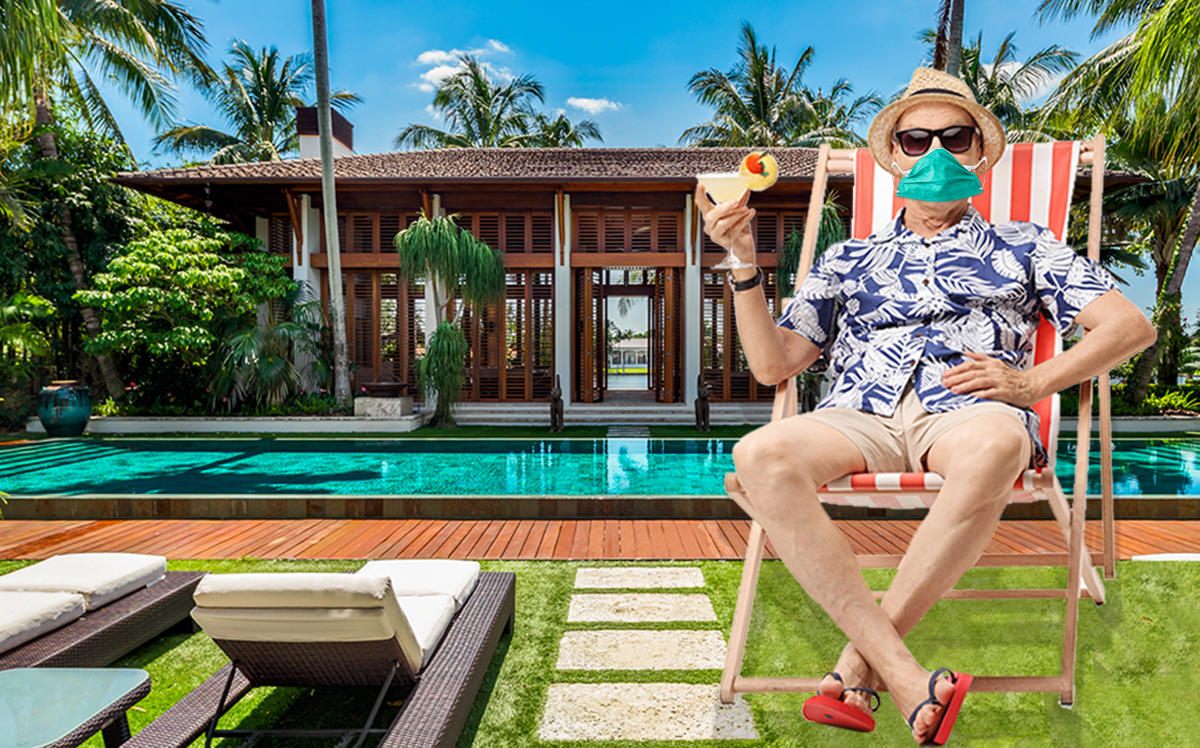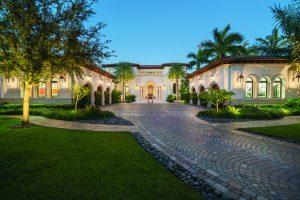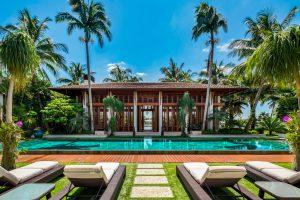Trending
Staying on the sunny side: South Florida resi brokers see upside in coronavirus
As renters flock to South Florida in the thick of the pandemic, brokers are betting on New Yorkers to save them

As the rest of the country was shutting down in March, South Florida’s top brokers were getting phone calls from wealthy out-of-towners looking for high-end homes they could rent — preferably with a pool and spacious backyard, and possibly a tennis court.
The majority of inquiries came from New York, though some also came from other states hit hard by the pandemic, including Michigan and Illinois.
Another unexpected source of rental and broker fee income? Those already living in South Florida condos were looking for space where their kids could run around, away from common areas and elevators. At least two condo dwellers requested and rented the backyards of homes with pools, for $25,000 and $30,000 a month. One family requested to rent an empty lot for sale in Miami Beach, so their children could use it as a playground while parks were closed.
During the first weeks of the pandemic, luxury brokers closed on rentals ranging from $15,000 a month up to $85,000 a month for waterfront homes in Miami Beach and in other high-end markets such as Palm Beach.
“The lease part of the business has definitely picked up,” said Danny Hertzberg, part of the Jills Zeder Group at Coldwell Banker. “There was anticipation that the luxury rentals were going to pull way back. The inventory has never been more limited, and prices are higher than at the start of the year.”
Brokers who normally handle tens of millions of dollars in residential sales a year have shifted their focus to leasing single-family homes, as closings — regardless of price — dropped significantly in April. Though leases are harder to track, brokers are reporting an uptick in rentals and hoping those clients will eventually turn into buyers.
In April, sales of luxury condos in Miami-Dade County plummeted 53 percent to 46 closings, according to MLS data provided by Berkshire Hathaway HomeServices EWM Realty. In the same period, 53 single-family homes in Miami-Dade County priced at $1 million and up sold, marking a 35 percent annual decline.
Peter Zalewski, a principal at Condo Vultures and founder of CraneSpotters, is predicting condo pricing will fall.
“The day of reckoning is coming,” he said during a recent TRD Talks Live webinar. “You’ve got a bunch of people looking to take down stuff,” Zalewski added, “and they’re not going to be nice, and they’re not going to pay you what you think it’s worth.”
Extended getaways?
Dora Puig, a broker and owner of Luxe Living Realty, said she closed six rental contracts in the first few weeks of the pandemic. She secured a three-month extension on a $20,000-plus a month rental on the Venetian Islands, and another extension for a rental unit at the Four Seasons Residences at the Surf Club in Surfside, for more than $28,000 a month.
One Sotheby’s International Realty agents Albert Justo and George Burns, top producers at the Miami-based brokerage, received calls from renters looking for homes asking between $15,000 and $70,000 a month.
“We already had a steady traffic of New Yorkers coming down, but more so during this crisis,” Justo said. “Certain tenants are already renting, and they extended their leases.”
Some notable sales have also closed in the past two months. In late March, David and Victoria Beckham closed on a $19.8 million unit at the One Thousand Museum condo tower in downtown Miami designed by the late Zaha Hadid.
But the pace of sales doesn’t compare to before the pandemic, and the South Florida market is still grappling with a glut of condos. In April, condo inventory in Miami-Dade more than doubled compared to the same period in 2019. For units priced below $1 million, there were nearly 20 months of supply as of last month, up about 100 percent year-over-year.
Ron Shuffield, president and CEO of Berkshire Hathaway HomeServices EWM Realty, said pending sales rose in the first week of May compared to the first week of April, when South Florida was on lockdown. The supply surge is also temporary, he noted.
It doesn’t help that many condo buildings have shut down their amenities and restricted move-in and move-outs during the lockdown, in many cases halting showings and slowing down the approval process for renters and buyers. That has led to single-family home sales outpacing condo sales for the first time since 2003, though Shuffield said that it’s “way too early” to tell if the trend will continue.
International buyers, who have been having a difficult time traveling to South Florida, are noticeably absent from the market, as well.
Though brokerages and agents were quick to flex their remote marketing skills, pushing out e-blasts with virtual tours and open houses, many high-end buyers won’t pull the trigger on a purchase without walking the property themselves, Hertzberg noted. He added that the shift toward video will likely lead to potential buyers touring fewer properties in person.
“A lot of people are really trying to buy,” Hertzberg said. “It’s very challenging to live in New York City right now.”
For now, many are predicting, and hoping, that renters who signed six- to 12-month leases will make offers on the properties they’re leasing or look to purchase other homes nearby. Unlike the Hamptons, where the temperature can dip into the 20s in the winter, South Florida brokers maintain, Miami is a desirable destination year-round.
“People are now realizing how … doable it is, to work from home,” argued Phil Gutman, president of Brown Harris Stevens Miami. “Why go back? South Florida will be a huge beneficiary from the coronavirus pandemic.”
Big-ticket sales
In April, Leon Medical Centers founder Benjamin Leon Jr. sold his waterfront mansion at 620 Arvida Parkway in Gables Estates for $49 million — marking the second most expensive single-family home sale ever in Miami-Dade.
That same month, Pharrell Williams also paid $30 million for a waterfront home at 700 Casuarina Concourse in the same gated community, reportedly rushing to close so he could stay there during the quarantine.
The same is happening in Palm Beach. Broker Jim McCann, of Premier Estate Properties, has gotten daily inquiries primarily from the Big Apple. Initially, callers wanted to rent houses, but now people are focusing more on buying properties and relocating — fueling a long-term trend driven by Florida’s favorable weather and lack of personal income tax.
In May, Douglas Elliman agent Cyril Matz sold a unit on Fisher Island for $13 million, including $800,000 for the furniture. The buyer, a businessman from Ohio, only toured the unit once, prior to the state shutting down. Matz said the contract went hard on March 10, and he thought the buyer would cancel, but the deal went through.

23 Tahiti Beach Island Road
Though some agents experienced a freeze in business, that is now starting to trickle back in as cities and counties roll out their reopening plans.
Nelson Gonzalez, a top broker in Miami Beach with Berkshire Hathaway HomeServices EWM, said his requests for rentals have started to shift back to homes for purchase. He had four deals under contract prior to the pandemic, and while three claimed force majeure, Gonzalez said he has two new buyers.
“We’re showing with masks and gloves and booties,” he said, “but we’re doing showings.”
Shuffield said the data for April only shows a snapshot of the full year, and he is optimistic that South Florida will bounce back faster than other major U.S. markets. He called the pandemic a health crisis, not a financial crisis, but still acknowledged the pain that many agents and brokerages are experiencing.
“April is going to be a month people are not going to like,” Shuffield said, referring to when the final data is reported. “For the last six months, we’ve been on the trajectory for a fabulous 2020, and we may still have a fabulous 2020.”




